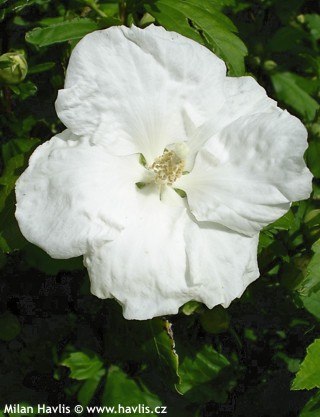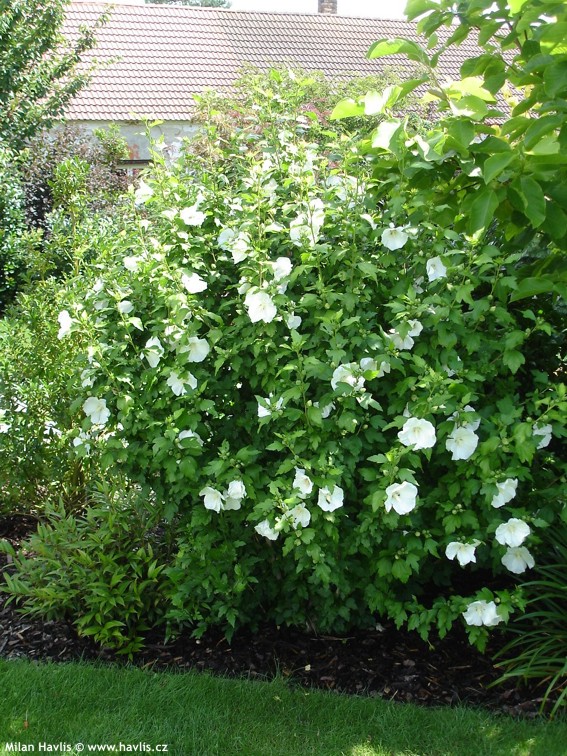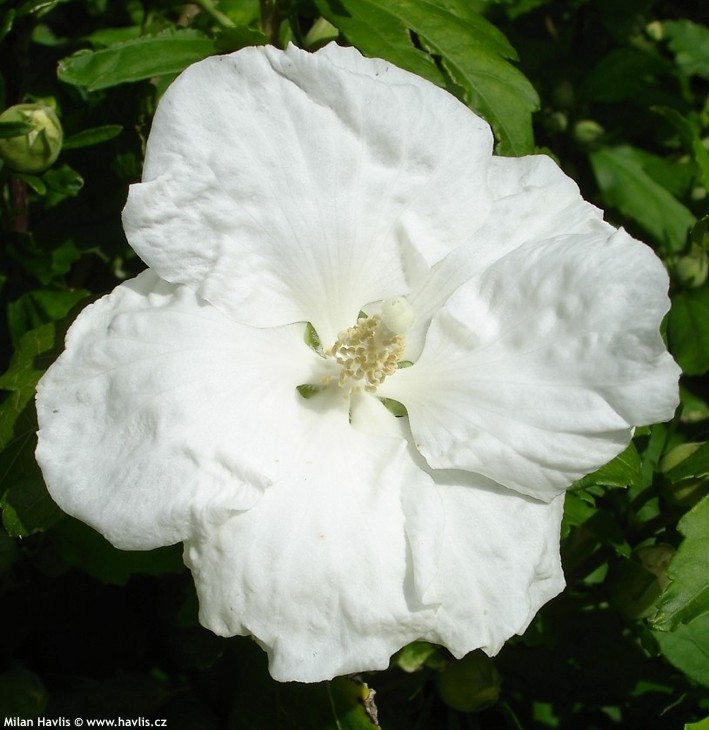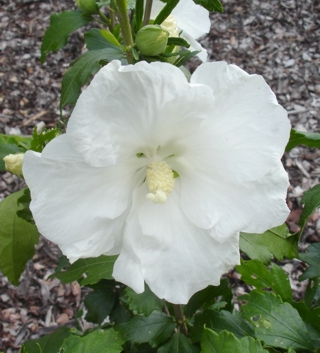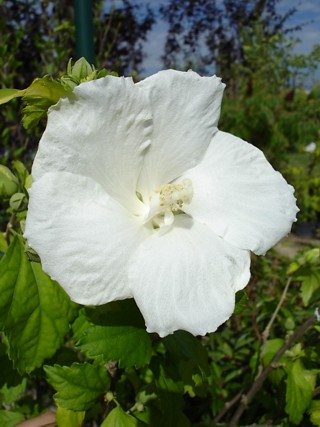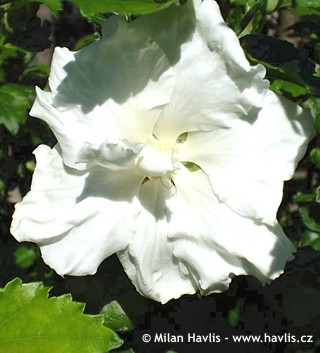Hibiscus syriacus 'WILLIAM R.SMITH' Rose-of-Sharon
Hibiscus
Rose-of-Sharon deserves more attention for its abundant flowering in summer. These maintenance-free shrubs come from eastern Asia and are the inevitable ingredient of every summer garden which they highlight with a wide range of coloured flowers. There has been a number of cultivars available since its discovery. They have various bloom colours, shapes and sizes, as well as variegated leaves.
William R. Smith is a name of an older Rose-of-Sharon variety where R. does not stand for a middle name, it means Reverend because this plant was named in honour of reverend and enthusiastic gardener William Smith. It is an upright, bushy shrub producing clear white flowers without the typical red eye in the centre. Blooming begins in early July and continues until sunny and warm days of September. Deciduous leaves are narrowly palmate, 3-lobed, mid to dark green and coarsely toothed. They emerge late so don't worry about frost damage when you don't see any growth in a spring garden that is green almost all around.
Regular pruning is not necessary or even welcome. Though you can re-juvenate old plants once every 5 or 7 years but cutting off 1/3 to 1/2 of its size in spring after all frosts.
Rose-of-Sharon is quite adaptable of soil type. It likes a lot of water and if you make sure that your new plant is not put to standing water at the beginning it will be happy for occasional flooding in summer. In other words hibiscus hate drought and becomes leggy and thin at the bottom. Older plants dislike peat. Selective fertilizers for better flowering are convenient. Place it in full sun only. Fully hardy to min. -27°C (USDA zone 5).
Last update 02-03-2018

































